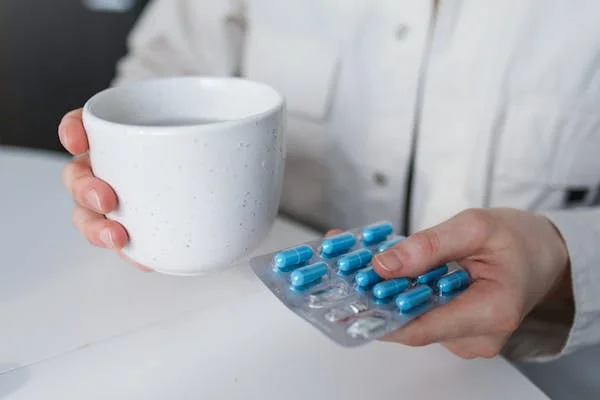Introduction
Methylsulfonylmethane (MSM) and Vitamin B1 (thiamine) are two essential compounds that have gained popularity in the health and wellness community due to their powerful health benefits. Although they each have their distinct roles in the body, when used together, they may offer synergistic effects that improve various aspects of your health. This comprehensive guide will delve deep into the individual benefits of MSM and B1 Mixer, the advantages of combining them, how to use them effectively, potential side effects, and how to incorporate them into your daily routine.
What is MSM (Methylsulfonylmethane)?
Methylsulfonylmethane (MSM) is a naturally occurring sulfur compound found in various foods such as fruits, vegetables, grains, and animal products. MSM is often used in dietary supplements and topical creams due to its wide range of health benefits. It is particularly known for its ability to support joint health, reduce inflammation, and improve skin conditions.
MSM is a potent antioxidant and can help protect your body against oxidative stress. It also plays a role in the formation of collagen, which is necessary for the health of your joints, skin, hair, and nails. MSM is available in various forms such as powders, capsules, and creams, making it easy to incorporate into your daily routine.
Health Benefits of MSM
1. Joint Health
MSM is widely recognized for its ability to alleviate symptoms of joint pain and inflammation. Studies have shown that MSM can help reduce pain, stiffness, and swelling in individuals with osteoarthritis and other inflammatory conditions. The compound works by reducing the production of inflammatory molecules in the body and promoting the formation of connective tissues that support joint function.
2. Skin Health
MSM has been shown to improve skin hydration and elasticity. It may help reduce the appearance of fine lines and wrinkles, making it a popular ingredient in skincare products. MSM also supports collagen production, which is crucial for maintaining youthful, healthy skin.
3. Exercise Recovery
Athletes and fitness enthusiasts often turn to MSM to help reduce muscle soreness and accelerate recovery after strenuous physical activity. MSM is believed to reduce inflammation and muscle damage, helping the body recover more quickly from intense workouts.
4. Detoxification
MSM supports the body’s natural detoxification processes by promoting the removal of toxins. It is thought to help the liver detoxify harmful substances, which may improve overall health and vitality.
What is Vitamin B1 (Thiamine)?
Vitamin B1, also known as thiamine, is a water-soluble vitamin that plays an essential role in energy production and maintaining a healthy nervous system. Thiamine is involved in converting carbohydrates into energy, a critical function for maintaining energy levels throughout the day. This vitamin is essential for the functioning of muscles, nerves, and the cardiovascular system.
Thiamine is found in many foods, including whole grains, beans, nuts, seeds, and pork. Since the body does not store Vitamin B1 in large quantities, it is important to consume adequate amounts daily through diet or supplementation.
Health Benefits of Vitamin B1
1. Energy Production
Thiamine is crucial for the metabolism of carbohydrates, which are the body’s primary source of energy. Without adequate Vitamin B1, the body may struggle to convert carbohydrates into energy, leading to fatigue and reduced stamina.
2. Nervous System Health
Thiamine supports the health of the nervous system by promoting the production of acetylcholine, a neurotransmitter that plays a role in memory and muscle control. Thiamine is essential for nerve function and helps prevent nerve damage caused by conditions such as peripheral neuropathy.
3. Cardiovascular Health
Vitamin B1 plays a key role in maintaining a healthy cardiovascular system by supporting the function of the heart muscle and aiding in blood circulation. Thiamine is believed to help prevent heart failure and other cardiovascular conditions.
4. Cognitive Function
Since thiamine plays a role in brain function, adequate levels of Vitamin B1 are crucial for memory, mood regulation, and mental clarity. A deficiency in thiamine can lead to cognitive decline, irritability, and confusion.
The Synergy of MSM and B1 Mixer: Why Combine Them?
When taken together, MSM and Vitamin B1 can complement each other’s effects, offering enhanced benefits for overall health. Here are some of the key advantages of combining MSM with Vitamin B1:
1. Anti-Inflammatory and Pain Relief
MSM is known for its anti-inflammatory properties, which can help reduce inflammation and alleviate pain. Combining MSM with Vitamin B1 may enhance these effects, particularly in individuals suffering from chronic pain conditions such as arthritis. Vitamin B1 supports nerve function, which can also help reduce pain sensations, especially those related to nerve damage.
2. Improved Energy Levels
While MSM has been shown to improve recovery after exercise, Vitamin B1 plays a critical role in energy metabolism. By combining MSM with Vitamin B1, you may experience more consistent energy levels throughout the day, especially if you’re involved in physical activities or have a demanding lifestyle.
3. Better Nerve Health
MSM promotes the health of connective tissues, which includes the nerves. Vitamin B1, on the other hand, is vital for nerve function and helps protect against nerve damage. Together, these compounds may help reduce symptoms of neuropathy, such as numbness, tingling, and muscle weakness.
4. Skin and Hair Health
Both MSM and Vitamin B1 contribute to skin and hair health in different ways. MSM helps with the production of collagen, which is essential for maintaining the elasticity and structure of the skin, while Vitamin B1 supports healthy blood circulation, which is important for the nourishment of hair follicles.
Recommended Dosage for MSM and B1 Mixer
The appropriate dosage of MSM and Vitamin B1 varies depending on individual needs, age, and overall health. However, general guidelines for supplementation are as follows:
| Compound | Recommended Dosage |
| MSM | 1,500 to 6,000 mg per day, depending on individual needs |
| Vitamin B1 | 1.1 mg to 1.2 mg per day for adults |
For individuals with specific health conditions, it’s important to consult with a healthcare provider to determine the ideal dosage.
How to Incorporate MSM and B1 Mixer into Your Routine
There are several ways to include MSM and Vitamin B1 in your daily health regimen:
1. Supplementation
Both MSM and Vitamin B1 are available as dietary supplements. MSM is often found in powder, capsule, or tablet form, while Vitamin B1 is typically available in B-complex supplements or as standalone thiamine tablets.
2. Dietary Sources
Incorporate foods rich in MSM and Vitamin B1 into your diet. MSM can be found in small amounts in fruits, vegetables, and animal products. Thiamine-rich foods include whole grains, beans, nuts, and seeds.
3. Topical MSM Products
MSM is commonly found in topical creams and gels that can be applied directly to the skin. This is especially beneficial for individuals with joint pain, inflammation, or skin conditions.
Potential Side Effects of MSM and B1 Mixer
Both MSM and Vitamin B1 are generally safe when taken within the recommended dosage ranges. However, some individuals may experience side effects, particularly when taking higher doses. Possible side effects include:
MSM Side Effects:
- Digestive Upset: Some people may experience mild gastrointestinal discomfort, such as bloating, gas, or diarrhea, especially when starting MSM supplementation.
- Headaches: Occasionally, individuals may experience headaches when taking MSM, although this is typically temporary.
- Allergic Reactions: Rarely, some people may experience allergic reactions to MSM, such as skin rashes or itching.
Vitamin B1 Side Effects:
- Allergic Reactions: In rare cases, individuals may experience allergic reactions to thiamine, such as swelling or difficulty breathing.
- Mild Digestive Issues: Some individuals may experience mild nausea or stomach upset when taking high doses of Vitamin B1.
If you experience any unusual symptoms, it’s essential to stop supplementation and consult with a healthcare provider.
Conclusion:
Combining MSM and B1 Mixer can provide numerous health benefits, particularly in areas such as joint health, energy production, and nerve function. The two compounds work synergistically to reduce inflammation, improve muscle recovery, and enhance overall well-being.
If you are considering adding MSM and Vitamin B1 to your daily routine, make sure to consult a healthcare professional to ensure they are suitable for your individual needs and health status. With proper dosage and guidance, these two compounds can play a valuable role in supporting your health and vitality.
Incorporating MSM and Vitamin B1 into your lifestyle, along with a balanced diet and regular exercise, can provide you with the necessary nutrients to maintain your health and improve your quality of life.
FAQs About MSM and B1 Mixer
Can MSM and B1 Mixer be taken together?
Yes, MSM and Vitamin B1 can be taken together and may offer enhanced benefits for joint health, energy, and nerve function.
What are the best sources of MSM and Vitamin B1?
MSM can be found in foods like fruits and vegetables, while Vitamin B1 is abundant in whole grains, beans, and pork.
Are there any side effects of MSM and Vitamin B1?
MSM may cause mild digestive upset or headaches in some individuals, while high doses of Vitamin B1 may lead to nausea or allergic reactions.
How much MSM should I take daily?
The recommended dosage of MSM ranges from 1,500 to 6,000 mg per day, depending on your needs.
Is Vitamin B1 essential for energy production?
Yes, Vitamin B1 plays a crucial role in converting carbohydrates into energy, supporting overall vitality and reducing fatigue.
Can MSM help with muscle soreness?
Yes, MSM is known for its ability to reduce muscle soreness and inflammation, particularly after intense exercise.






